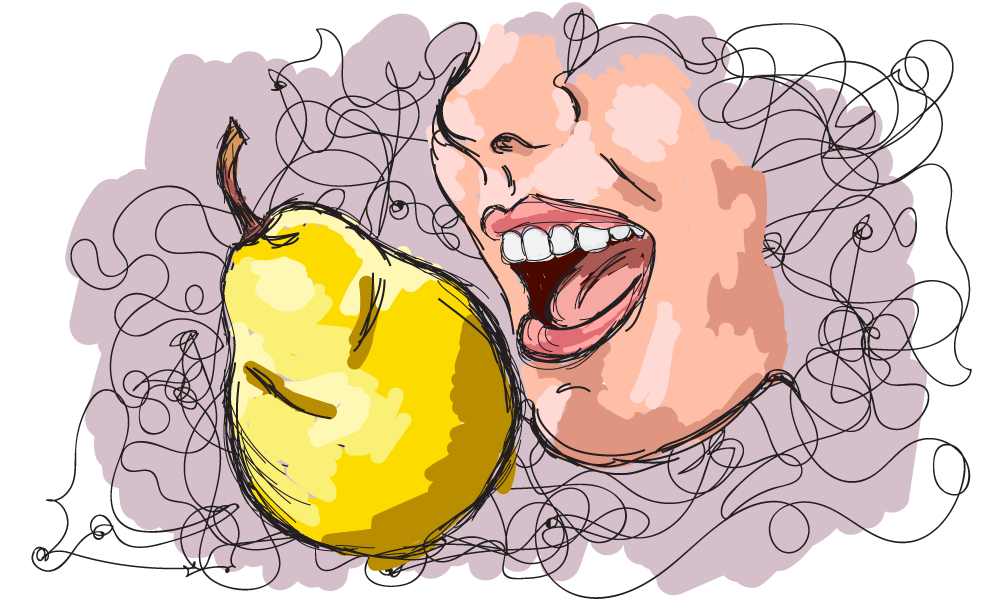In Dark Ladies & Other Avatars, her debut poetry collection, Joan Roberta Ryan pays exquisite attention to seeing, eating, feeling, reflecting, and remembering — acts of attention that define what it means to live fully and well. Lit up by sparkling specificity and wit, these beautifully crafted, mostly free verse poems focus on both lovely things and disturbing things. Ryan’s subjects range from contemplations of literature and art, to heart-breaking poems about a sister’s mental illness, to appreciations of family members and their prized possessions. Most touchingly of all, the poet writes of long-married love and the art of domestic life. Ryan’s language is erudite, but her poems are never obscure. Even when she deploys unusual words, such as “akathisia” (a movement disorder) and “anosmia” (loss of the sense of smell), she does in the service of exactitude; readers get to increase their vocabularies in the bargain. Ryan incorporates subtle half-rhymes and enlivening tonal changes. She writes smart poems with heart.
The book begins with a suite of lyrics about major works of European art and sharply witty persona poems about characters from myth, history, and literature. The reader would do well to look up the paintings in an art book or on the internet, the better to relish Ryan’s well-researched takes on such works as Cranach’s Cupid Complaining to Venus, da Vinci’s The Lady with the Ermine, or Titian’s Venus d’Urbino. In “Angela del Moro, Courtesan,” the third segment of Ryan’s “Three Views of the Venus d’Urbino,” Titian’s voluptuous reclining nude claims her own dignity, even as del Moro notes how much she, as prostitute, has in common with the great painter, who also plies his trade for the highest bidder. The poem, like many in the book, is erotic. Ryan often celebrates the female body — sometimes, rather sardonically and comically, as when she writes of how much women go through to look beautiful. In “Clytemnestra on Kosmetikos,” the wife of Agamemnon complains, “Even the morning soak in milk and honey/turns tedious.”
Back for a moment to Ryan’s amazing vocabulary and wordplay. In addition to the terms mentioned above, I loved learning other new words including “pentimento” (alterations in a painting), “hennin” (a high cone-shaped hat), and “girolle,” “pfifferling,” “capo gallo,” and “lisitjka” (all translated names for the chanterelle mushroom). I delighted in the subtle sound effects of the poet’s half-rhymes. In “Cecilia Gallerani,” Ryan’s poem, based on da Vinci’s painting of the aforesaid woman with her pet ermine, Ryan half-rhymes “neck” with “polished jet.” And later in the same poem the speaker humorously queries why the canvas of Cecilia “is sent to Cracow, where Delacroix/(who knows pourquoi?)” amends the painting by blackening the background.
A radical shift takes place in the second section of the book. Here the poems turn swiftly from life of the learned, focused, and contemplative mind to the chaotic mind of a schizophrenic sister who is haunted by imaginary voices, commanded by weird obsessions, and suffers from uncontrollable restlessness. Here is a portion from “Close Kept”:
Barbara winds her way down Quesnel Street
to pick up her Marlboros and organic milk.Muttering sotto voce, she averts
lens-shaded eyes from the horses
fenced a field-length away,
watches for cracks in the pavement
under unsteady feet, does not see me drive by.Though tamed now by Clozaril,
The voices are with her again.
She speaks with them in deep private,
close guarded as the headless rubber
doll, six perfumes, and carved red bead
she seals in her triple-locked trunk.
Echoes of Robert Lowell combine with the detail of this mind imprisoned by madness. Later, the speaker describes the sister’s death and burial beneath a rose granite stone. The mentally ill suffer, and they cause their loved ones to suffer. The poems address that double plight.
The family poems section eventually pulls away from the painful theme of Barbara’s illness. In successive poems, the poet addresses beloved parents in their decline and death. In “Three Weeks After,” the speaker describes polishing her mother’s silver in a ritual of mourning and connection. Ryan often describes a family through its artifacts: an alpaca shawl, oyster forks, cherished fountain pens, old perfumes, and china. The poet notes that some of those “heirlooms” are recently acquired treasures bought at yard sales.
The third and final section of Dark Ladies & Other Avatars treats us to poems of married love. Many of my favorites in the collection are here. In “Request,” the wife pleads with the husband, a literary translator, not to go fishing with a buddy, but to stay home with her in “our slate-roofed cottage”:
. . . to consider subtleties of Sung prosody,
the rectification of names, campaigns of dead
emperors . . .
The address to the husband continues with a list of epicurean dishes the wife would like to have (“Muscovy/duck breast with pomegranate and pine nuts”). Later the poem shifts to the marriage bed and memories of the couple’s youth:
. . . And there she will dream
of the fisherman’s hut where, barely nineteen,
she first lay with you.
The sensual and the erotic, essential to Ryan’s vision of the good life and the good married life, inform so many of these delightful poems. I also appreciate that the collection includes a poem or two about a couple’s spats, such as “After Long Quarreling,” a love poem in which the husband extends a morning peace offering of coffee with cardamom to his wife. Later in that poem, Ryan adds a scene change, and shows the couple standing outdoors in winter gazing through their backyard window to their amber-lit home, the golden place of domestic comfort, peace, and love.
I hope that this collection is the first of many more by Joan Roberta Ryan, a poet of exquisite sensibilities, of keen attention to the world, and appreciation of the good life, not preached but demonstrated. •
All images created by Emily Anderson.




